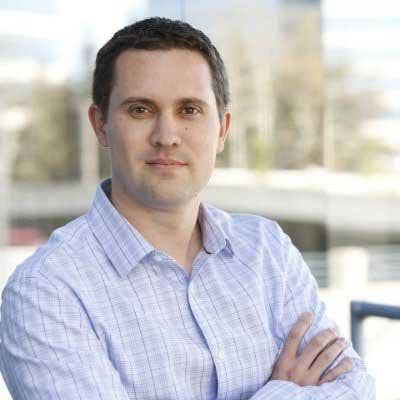The 10 Coolest Big Data Startups Of 2017 (So Far)

Hot Market, Cool Startups
Research firm IDC calculates that the total amount of digital data will increase from 16.1 zettabytes last year to 163 zettabytes in 2025. (A zettabyte equals 1 billion terabytes.) So it's not so surprising that demand for big data software and services to manage and make sense of all that data is growing more than 18 percent a year, according to researcher MarketsandMarkets.
Many startups in the big data arena are focused on providing solutions to the problems of linking disparate data sources and moving data to the cloud for easier accessibility and analysis. There's also a growing trend to incorporate machine learning and other artificial intelligence technologies within big data software to make them smarter than they already are.
Here are 10 cool startups in the big data arena that have caught our attention in the first half of 2017.
(For more on the "coolest" of 2017, check out "CRN's Tech Midyear In Review.")

AtScale
CEO: Dave Mariani
Hadoop may be popular for collecting and managing big data, but accessing that data to analyze and derive value from it can be problematic.
AtScale develops software that allows popular business intelligence tools like Tableau and Qlik to access data stored in Hadoop clusters, essentially turning Hadoop into an online analytical processing server that can be tapped for multidimensional analysis.
AtScale, founded in 2013 and based in San Mateo, Calif., snagged a patent for the ability of its calculation engine to run against any BI visualization tool. In June the company launched AtScale 5.5 with new capabilities including high-availability deployment, prediction-defined aggregates, and support for complex business use cases and analytical models.

DataRobot
CEO: Jeremy Achin
Machine learning is hot and DataRobot, founded in 2012, developed an automated machine learning platform that captures the knowledge, experience and best practices of data scientists and uses that information to build and deploy predictive models in a fraction of the time it takes using traditional tools and techniques.
Boston-based DataRobot was already attracting attention when in May it acquired Nutonian, another data science software developer specializing in time series analytical modeling.
In March DataRobot secured $54 million in Series C financing, bringing its total funding to more than $120 million.

DataScience
CEO: Ian Swanson
Data scientists are in short supply these days, so businesses are looking for every way to maximize their data scientists' time and make the best use of their talents.
DataScience offers an enterprise data science platform that combines tools, libraries and languages with IT infrastructure and business workflows. An extensive update released in May offers either on-premise or cloud deployment options – the latter across multiple cloud service providers – along with security, customizable workflows and support for a wider range of data science programming languages.
DataScience was founded in 2014 and is based in Culver City, Calif. In June the company formed an alliance with H2O.ai, developer of an open-source artificial intelligence system, in a move that allows data scientists to deploy artificial intelligence and deep learning models with the DataScience platform.

Endor
CEO: Doron Alter
Endor has developed a predictive analytics platform that allows business users to ask any question, such as "Who is likely to try this new product? and "Where should we open our next store?" and get an answer in minutes.
The company based its proprietary technology on "social physics" research from the Massachusetts Institute of Technology. While machine learning may be good at predicting, say, when a critical piece of equipment will fail, social physics uses big data analysis and the mathematical laws of biology to understand the behavior of human crowds.
Endor (yes, it has the same name as the planet in "Star Wars") was founded in 2014 and is based in Tel Aviv, Israel. This year Gartner named the company a cool vendor in business analytics and the World Economic Forum named it a technology pioneer.

Gluent
CEO: Tanel Poder
Gluent develops data virtualization technology that makes possible what the Dallas-based startup calls "hybrid data" computing. The Gluent Data Platform offloads data from traditional relational database systems to Hadoop, while still providing access to that data.
The vendor's system creates a way for businesses to leverage the flexibility and scalability of cloud-based or on-premise Hadoop clusters while boosting query performance and reducing storage-area network and relational database license costs, according to the company.
Gluent was recognized as a Gartner "cool vendor" in data management and took second place in the Strata + Hadoop World Startup Showcase in March.

Iguazio
CEO: Asaf Somekh
The Iguazio Continuous Analytics Data Platform simplifies business analytics processes for big data, the Internet of Things and cloud-native applications by unifying different data types and workloads.
The Iguazio system creates a unified data model through multiple protocols and industry standard APIs, the latter including Amazon-compatible streaming and table, object and file APIs. Any type of data is stored in a normalized and search-optimized form just once and transformed on the fly, eliminating the need for copies, ETL processes and complex data pipelines.
Iguazio, founded in 2014 and based in Herzliya, Israel, was also named a 2017 Gartner "cool vendor" in data management.

Maana
CEO: Babur Ozden
Maana develops what it calls "knowledge-centric" data search and discovery software. The Maana Knowledge Platform collects data from multiple disparate systems or "silos" and turns it into operational insight that can be used by line-of-business applications.
At the core of the Maana system is the startup's patented Knowledge Graph technology and algorithms that provide a holistic view of the assets or processes that a business wants to optimize. The company's more immediate focus has been on industrial applications and customers in the oil and gas industry – the startup's biggest investors are energy companies including Shell, Chevron and Saudi Aramco.
Founded in 2012 and based in Palo Alto, Calif., Maana was recently named one of the World Economic Forum's technology pioneers.

Nexla
CEO: Saket Saurabh
Nexla is developing a data operations platform that uses machine learning technology to monitor, adapt and securely move data between companies in real time. By automating such data operations, the Nexla argument goes, companies can more quickly derive value from their data with minimal engineering.
Founded last year, Millbrae, Calif.-based Nexla just released a public beta of its product in May. At the same time the company raised $3.5 million in seed financing.
Nexla caught everyone's attention in March when it won the top prize in the Startup Showcase at the Strata + Hadoop World conference.

Panoply.io
CEO: Yaniv Leven
Panoply.io has developed a cloud-based data warehouse system that fully automates complex and time-consuming data preparation, modeling and management processes.
Working with Amazon Web Services' Redshift service, Panoply's system incorporates machine learning and natural language processing to perform many of the tasks traditionally handled by data engineers, server developers and data scientists, saving huge amounts of time through reduced coding and data transformation work.
Panoply, founded in 2015, is based in Tel Aviv, Israel.

Periscope Data
CEO: Harry Glaser
Periscope Data's software connects multiple databases, providing users with a way to run SQL queries against data residing in multiple systems, and generates interactive dashboards and charts that can be shared throughout a company. The Periscope Database Cache, a distributed architecture with columnar storage, is the key technology within the Periscope system.
Founded in 2012, Periscope Data is based in San Francisco. The company received $25 million in Series B funding in November 2016.